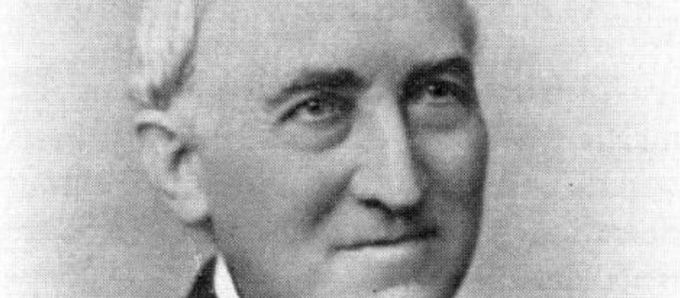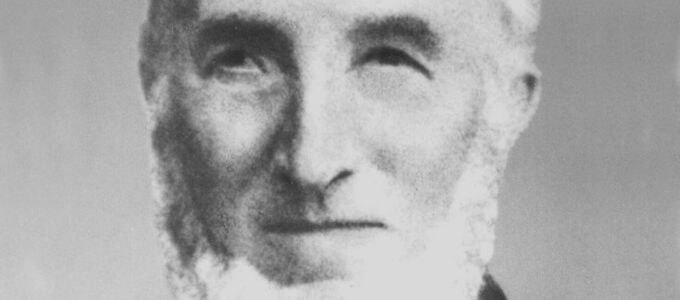
Incense, candles, ornate robes? Without Apostle Menkhoff, divine services in the New Apostolic Church would perhaps still look like this today. Here is a tribute on the 125th anniversary of his death.
They were something like a leadership duo before the ministry of Chief Apostle was even created: Friedrich Wilhelm Schwarz and Friedrich Wilhelm Menkhoff. Winding paths brought them together.
Apostle Schwarz was at the centre of events when the Hamburg congregation separated from the Catholic Apostolic Church in 1863. A prophecy brought him to his new working area in the Netherlands.
An encounter with consequences
It was here that he crossed paths with Pastor Menkhoff, a Protestant, who had settled there a few years earlier after leaving Westphalia in Germany—following in the footsteps of itinerant craftsmen and seasonal workers to Holland known as Hollandgänger. He reported: “The poor Germans who are earning their bread in these moorlands have a great need for the bread of life.”
The rest is history: Menkhoff heard about the apostolic faith through Schwarz, was sealed, received the ministry of Evangelist, was ordained a Bishop, and was finally called as an Apostle. Together they shaped what would one day become the New Apostolic Church.
A legacy in doctrine and liturgy
Apostle Schwarz actually still clung to Catholic Apostolic traditions, but Menkhoff managed to convince him to make the divine services less elaborate. The reform in the direction we know today started in the Netherlands in 1870, but it took another 20 years before it came to be established in Germany.
Apostle Menkhoff also left his mark on the doctrine:
- He wrote a treatise with the title Grundsätze und Glaubens-Bekenntniß der Apostolischen Gemeinde in Bielefeld (literally: “Principles and Confessions of Faith of the Apostolic Congregation in Bielefeld”) which influenced the “form in which Holy Communion can be celebrated”—so the subtitle.
- He published an epistle on baptism, which continued to have an effect on the definition of the sacrament up to the time of Chief Apostle Johann Gottfried Bischoff.
- And he translated the book Buch für unsere Zeit (“Book for our time”), which originated under the overall control of Apostle Schwarz and which shaped the New Apostolic doctrine of the last things (eschatology) right up to the time of District Apostles Rockenfelder and Weinmann.
He left his mark in print
One means of propagating the teaching was a publication with the title
Herold, the first monthly magazine of the New Apostolic Church, which Apostle Menkhoff began publishing in 1884 and which he supervised in terms of content until a few months before his death on 21 June 1895.
A public gift on the occasion of Chief Apostle Hermann Niehaus’s birthday showed the respect and significance Menkhoff still enjoyed posthumously. A beautifully designed booklet, printed especially for the occasion, featured the fourfold ministry: apostle, prophet, evangelist, and shepherd—the latter personified by Apostle Menkhoff.












